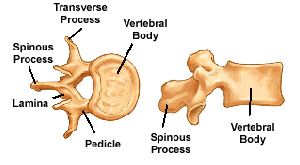- UPPER RESPIRATORY DISORDERS
Croup: Acute respiratory syndrome in children and infants, characterized by obstruction of the larynx and by barking cough.
Diptheria: Acute infection of the throat and upper respiratory tract caused by the bacteria Cornyebacterium.
Epistaxis: A condition when bleeding occurs through nose.
Pertussis: Bacterial infection of the pharynx, larynx and trachea caused by Bordetella pertussis. It is also known as the whopping cough.
- BRONCHIAL TUBE DISORDERS
Asthma: Spasm and narrowing of the bronchi leading to bronchial airway obstruction.
Bronchiogenic carcinoma: Cancerous tumors arising from the bronchus, lung cancer.
Chronic bronchitis: Inflammation of the bronchi persisting for a longer period of time.
Cystic fibrosis: Inherited disease of the exocrine glands such as sweat glands, mucous membrane of the respiratory tract leading to the airway obstruction.
- VARIOUS LUNG DISORDERS
Atelectasis: It refers to the incomplete expulsion of the alveoli; collapsed, functionless, airless lung or portion of a lung.
Emphysema: Hyperinflation of air sacs with destruction of alveolar walls.
Pneumoconiosis: Abnormal condition of the lungs, with chronic inflammation, infection and bronchitis.
Pneumonia: Acute inflammation and infection of alveoli
Pulmonary abscess: Large collection of pus because of bacterial infection in the lungs.
Pulmonary edema: Swelling and fluid in the air sacs and bronchioles.
Pulmonary embolism: Clot or other material lodges in vessels of the lungs
Tuberculosis: An infectious bacterial disease caused by, Mycobacterium tuberculosis. Usually lungs are involved, but it can damage any organ of the body.
- VARIOUS PLEURAL DISORDERS
Mesothelioma: It condition malignant tumor arises in the pleura. It is composed of mesothelium, which is epithelium that covers the surface of pleura, peritoneum and pericardium.
Pleural effusion: Escape of fluid into the pleural cavity.
Pleurisy: Inflammation of the pleura.
Q.1. The causal organism for diphtheria is:
- Cornyebacterium spp.
- Mycobacterium spp.
- Salmonella spp.
- Clostridium spp.
Ans. a
Q.2. The causal organism for pertussis is:
- Cornyebacterium spp.
- Mycobacterium spp.
- Salmonella spp.
- Bordetella spp.
Ans. d
Q.3. Cystic fibrosis is caused due to the malfunctioning of:
- Endocrine glands
- Exocrine glands
- Both
- None
Ans. a
Q.4. In asthma:
- Alveoli narrows
- Bronchi narrows
- Bronchioles narrow
- Trachea narrows
Ans. b
Q.5. Pertussis is also known as:
- Barking cough
- Whooping cough
- Intense cough.
- Cough
Ans. b
Q.6. Pneumonia is:
- Inflammation of alveoli
- Inflammation of bronchi
- Inflammation of bronchioles
- Inflammation of trachea
Ans. a
Q.7. Large collection of pus due to bacterial infection in the lungs:
- Asthma
- Pulmonary embolism
- Pulmonary abscess
- Pulmonary edema
Ans. c
 IT2EDU Empowering Education Through Technology
IT2EDU Empowering Education Through Technology

